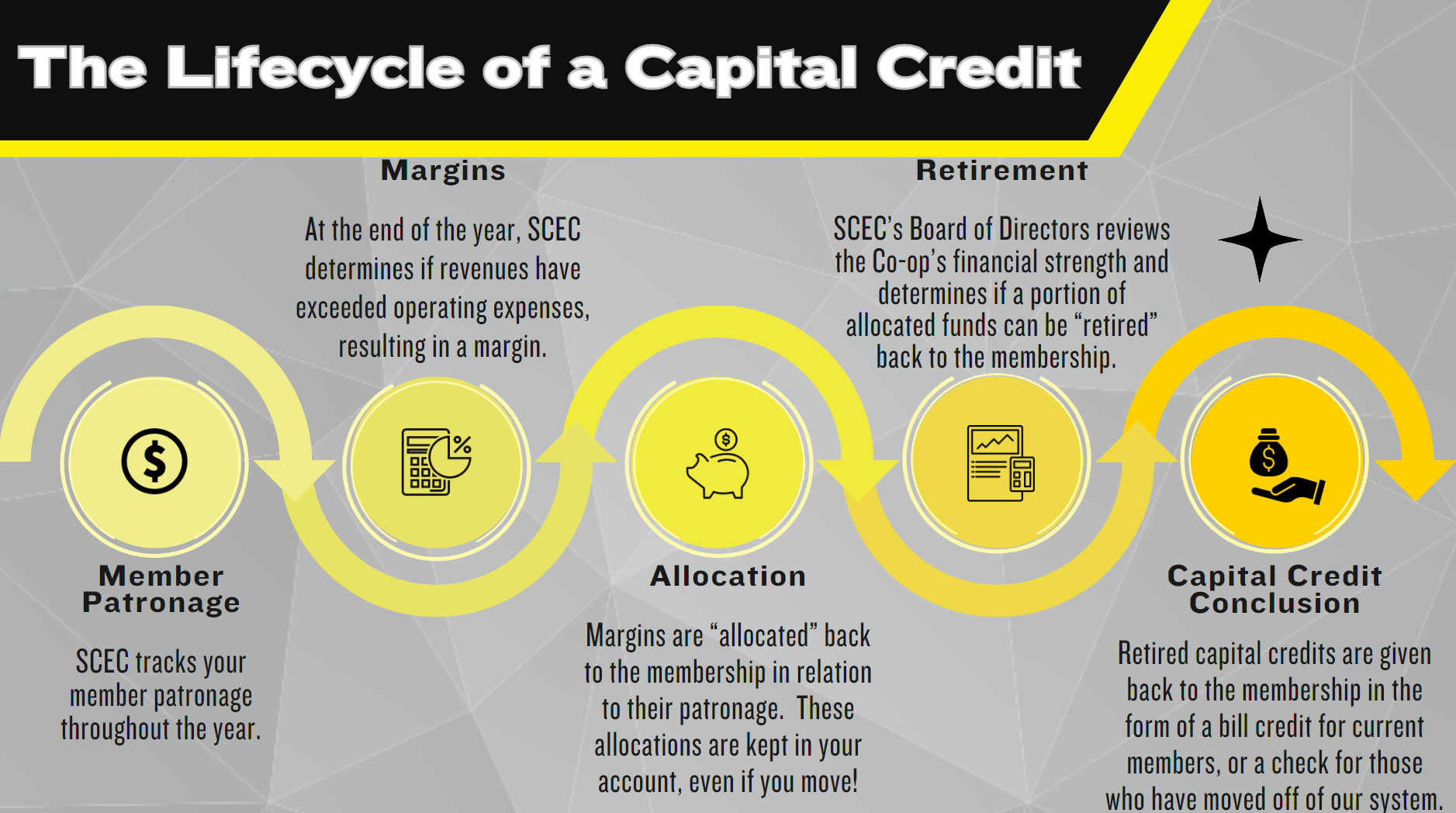Your Share in the Cooperative
In December 2024, Sumner-Cowley Electric retired $552,974.80 in capital credits, returning funds to current and former members through bill credits or checks.
When you signed up for electric service with Sumner-Cowley, you became more than just a customer—you became a member of a cooperative. Unlike investor-owned utilities that return profits to shareholders, electric cooperatives operate at cost. Any excess revenue, known as margins, is allocated to members based on their electricity usage and later returned as capital credits.
This year, members who received service in 1998 received a capital credit retirement, reflecting their contribution to and ownership of the cooperative during that time. While 1998 may seem like a long time ago, these funds helped keep rates stable, reduced the need for outside borrowing, and supported the construction and maintenance of a reliable electric system.
Below are answers to common questions about capital credits.


